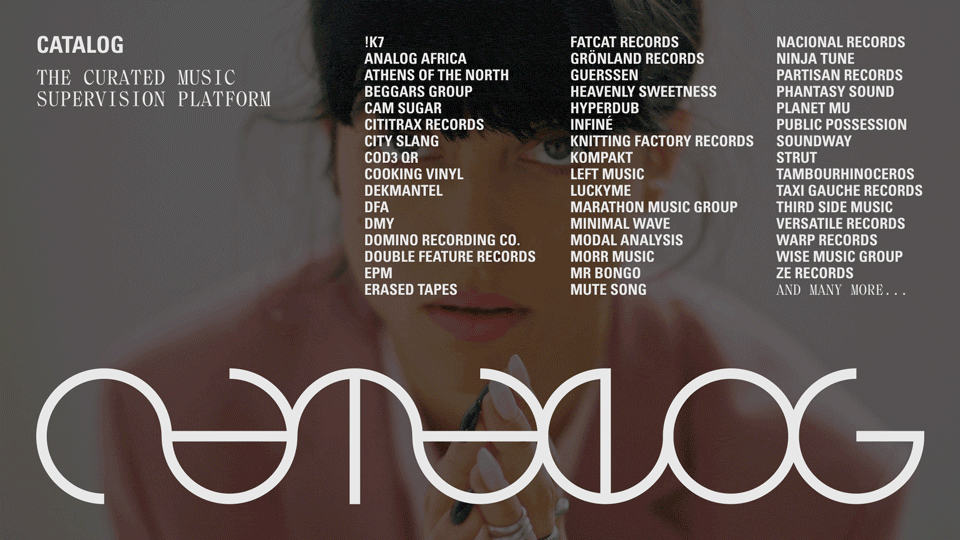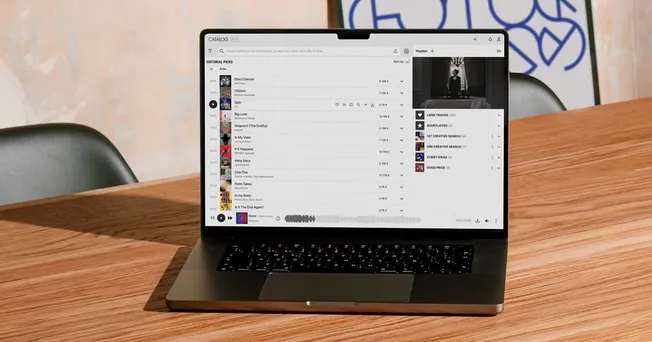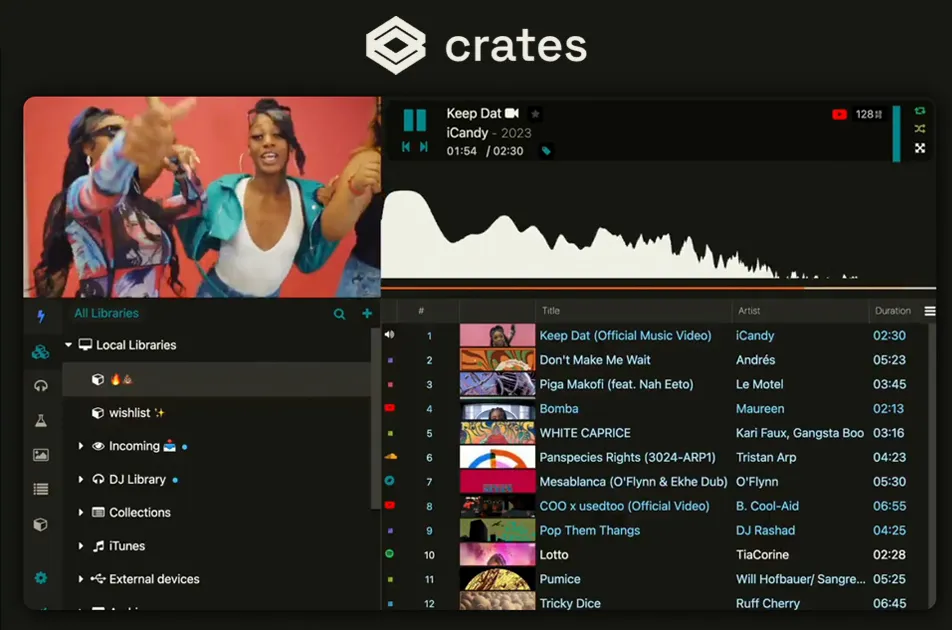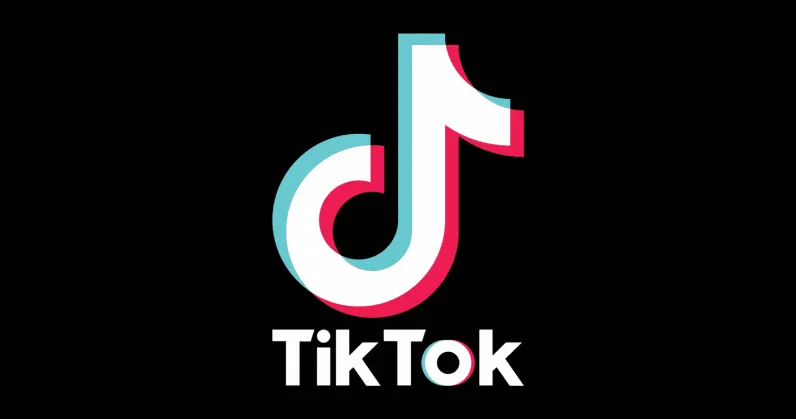New platform, Catalog launches as an alternative to royalty-free stock music licensing.
A new platform called Catalog is making waves across the music and visual media industries with the launch of what it calls the first end-to-end curated sync marketplace. It’s a bold alternative to the $1.3 billion “royalty-free” stock music sector that many say has stripped artistry and cultural value from music licensing.
Backed by an alliance of some of the world’s most respected independent labels, including !K7, Beggars Group, Domino, Ninja Tune, Warp, Mute Song, Kompakt, City Slang, and Partisan Records, Catalog aims to return control and revenue to artists while making it easier than ever for storytellers in film, TV, advertising, and gaming to license meaningful music quickly and fairly.
The platform debuts with over 30,000 tracks from 1,800 artists across 60 leading imprints, representing a who’s who of culturally vital music: from Laurent Garnier, Belle and Sebastian, and Kurt Vile, to Ólafur Arnalds, Yves Tumor, and Ela Minus.

Fixing a Broken System
Founded by Frederic Schindler, AIM’s 2025 Music Supervisor of the Year, Catalog was built out of frustration with a licensing process that has historically funnelled billions of dollars to “ghost artist” libraries — anonymous stock-music suppliers that undercut authentic artistry in the name of convenience.
“The solution isn’t to abandon artistry for convenience; it’s to fix the friction,” Schindler said. “We built Catalog to empower storytellers to use music they love, and to redirect that billion-dollar revenue stream back to the artists who are the lifeblood of our culture.”
To achieve that, Catalog combines expert human curation with cutting-edge tech, allowing users to search and license tracks in hours instead of months. Its proprietary Sync Smart Pricing™ tool uses thousands of data points — from an artist’s history to cultural context — to generate transparent, market-rate estimates for each use. A final license is instantly generated and authenticated on the blockchain, completing what was once a tedious legal process in a single step.
Proven in Private Beta with Hermès and Dior
Catalog’s system has already been tested by some of the world’s top creative teams. During Hermès’ Men’s Ready to Wear 2026 show, the platform helped replace a last-minute track request in under 24 hours — a process that normally takes weeks. The quick turnaround impressed industry veterans like Christof Ellinghaus, CEO of City Slang, who noted: “This placement demonstrated Catalog’s ease of process and powerful usability. And trust us, we usually hate platforms!”
A Win for Independent Musicians
For independent musicians, Catalog’s launch could help shift the momentum of sync licensing economics back towards human artists. Historically, artists outside of major label systems have faced steep barriers to entry: slow negotiations, gatekept relationships with supervisors, and opaque pricing models that often leave creators underpaid.
By streamlining discovery, negotiation, and payment — and partnering directly with indie labels that value artistry — Catalog effectively levels the playing field to make lucrative offers available to a wider community of creators. It gives independent musicians a more direct line to film, television, advertising, and fashion clients who want culturally rich, authentic music but don’t have months to navigate licensing bureaucracy.
In short, Catalog replaces the race-to-the-bottom of “royalty-free” libraries with a model that rewards creativity, integrity, and fair compensation. It’s a reminder that even in a tech-driven world, great art still matters — and artists deserve to benefit when their work moves culture forward.
Interested to try Catalog? Learn more and apply for membership here.





